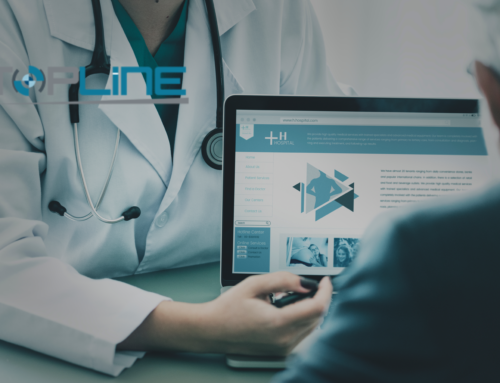In the dynamic landscape of healthcare, technological advancements have become integral to boosting efficiency, accuracy, and overall patient care. A key player in this technological evolution is the rising prominence of clinic management software. These robust solutions are reshaping healthcare facilities, streamlining administrative tasks, improving communication, and ultimately, raising the bar for patient services.
Streamlining Administrative Tasks:
At the forefront of the widespread adoption is the software’s prowess in automating various administrative tasks. From appointment scheduling and billing to inventory management and record-keeping, clinic management software brings efficiency to the forefront. By automating routine tasks, healthcare professionals can redirect their focus toward delivering quality patient care, optimizing the overall workflow of the clinic.
Enhanced Patient Experience:
Integration of clinic management software significantly improves the overall patient experience. With features like online appointment scheduling, patients can easily book and manage appointments, leading to reduced wait times and the elimination of manual scheduling hassles. Moreover, these software systems often incorporate patient portals, enabling individuals to effortlessly access their medical records, and test results, and communicate with healthcare providers. This fosters a more patient-centric approach to healthcare.
Improved Communication:
Effective communication is the backbone of healthcare, and clinic management software excels in enhancing it. These platforms include features like internal messaging systems, notifications, and alerts that facilitate seamless communication among healthcare staff. Whether notifying a physician of a new appointment or alerting the front desk about a patient’s arrival, these communication tools contribute to a more coordinated and responsive healthcare environment.
Efficient Billing and Financial Management:
Managing finances within a healthcare environment is complex and time-intensive. Clinic management software streamlines this intricate process by automating billing, invoicing, and financial reporting. The incorporation of electronic billing systems reduces the likelihood of errors and expedites the reimbursement process. This empowers healthcare facilities to effectively monitor their financial performance, optimize revenue cycles, and adhere to billing regulations.
Robust Data Security:
In an era dominated by data breaches and privacy concerns, clinic management software prioritizes robust data security measures. These platforms adhere to healthcare regulations, notably the Health Insurance Portability and Accountability Act (HIPAA), ensuring the confidentiality and integrity of patient information. Through secure user authentication, encrypted data transmission, and regular system updates, healthcare providers can confidently rely on the software to uphold stringent standards and ensure the security of sensitive data.
Integration of Electronic Health Records (EHR):
Clinic management software seamlessly integrates with Electronic Health Records (EHR), consolidating patient information into a centralized and easily accessible digital format. This integration fosters interoperability among healthcare providers, enabling a more comprehensive view of a patient’s medical history. It not only enhances diagnostic accuracy but also facilitates better-informed decision-making by healthcare professionals.
Scalability and Customization:
The modular nature of clinic management software makes it highly scalable and customizable. Healthcare facilities of various sizes can tailor the software to meet their specific needs and scale the system as the organization grows. This adaptability ensures that the software remains a valuable asset in both small clinics and large hospitals, contributing to its widespread appeal.
Remote Accessibility:
In the modern healthcare landscape, mobility and remote work are prevalent. Clinic management software addresses this need by offering remote accessibility features. Healthcare providers can access patient records, schedule appointments, and manage administrative tasks from anywhere with an internet connection. This capability enhances flexibility for healthcare professionals and contributes to more timely and efficient patient care.
The rise of clinic management software is attributed to its multifaceted benefits, streamlining administrative tasks, enhancing the patient experience, improving communication, ensuring financial efficiency, prioritizing data security, integrating EHR, providing scalability, and offering remote accessibility. As healthcare continues to evolve, the adoption of technology-driven solutions becomes increasingly essential, with clinic management software standing as a beacon of innovation, revolutionizing the way healthcare facilities operate and deliver services to their patients.





